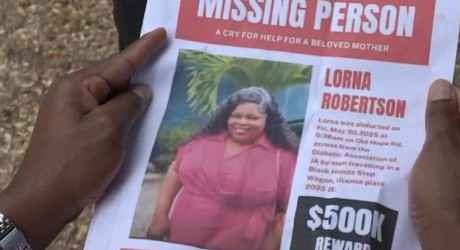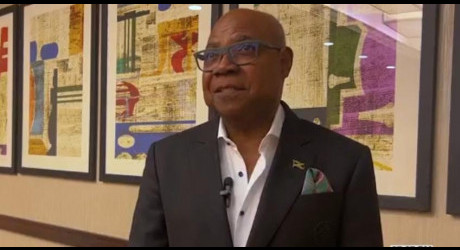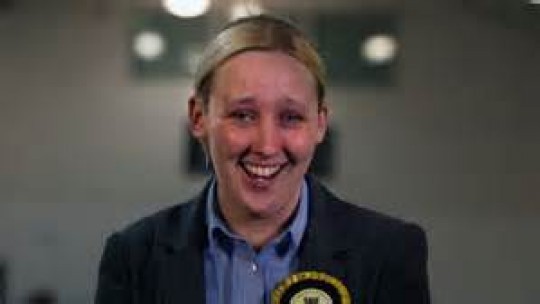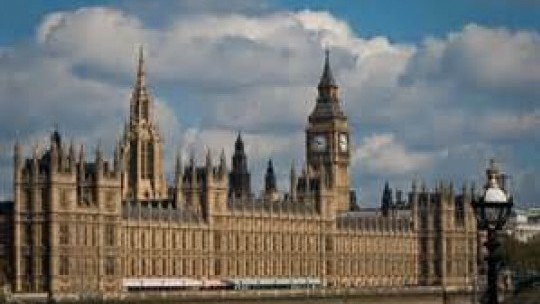UK Parliament’s Wash Belly Pickni
2:28 pm, Tue May 26, 2015
By Bumpy Walker
The UK elections are now over. Because of the new fixed term parliament, the campaign seemed longer and less spontaneous. The mother of Parliaments has been renewed. The results are now known.
As in the rest of the world, gone are the days when the television, radio and news print held sway and had captive audiences craving their information and entertainment fix. Instead internet connectivity gives the opportunity for the voters to select information at their convenience from a myriad of sources, some of which are dubious, some scandalous and others downright salacious.
So What Happened?
Regime change... oops - “administration change” has happened once more in the UK without a bullet being fired. But there was one small post-election riot which had little impact.
A quick summary is, the Conservatives - the major partner in the recent ancient regime - won a total of 331 seats; a majority of a mere five. This meant the Conservatives discarded from government their former coalition partners, the Liberal Democrats. The Lib Dems paid the price for their participation in government for the last five years by losing forty nine seats, reduced to a stump of eight. The major opposition party - the Labour party - lost a total of 26 seats, including all of their seats in Scotland, where the pro Scottish Independence party, Scottish National Party(SNP), won a total of 56 seats.
Interestingly, Labour lost 40 seats in Scotland and gained 15 seats in England. A case of they were not left enough for the Scots but too left for the Sassenachs!
The usual inequality of the Westminster Parliamentary system was again obvious as the anti-immigration Party, UKIP, had a total vote of 3.8 million votes, or 12 % of the popular vote, but came away with a single seat. Contrast this with the fortunes of the SNP with a vote count of 1.4 million, or 4.7 % of the popular vote but having a total of 56 seats. This is ironic, given that for years it was the SNP that complained about this vote-to-seat disparity!
Both Labour and the Conservatives increased their share of the total popular vote by 1.5% and 0.8 % respectively. But labour was the loser! 1)
Bloodletting for Losers
Britain is a country of political traditions; a lot of parliamentary “manners” are based on historical precedent with unwritten rules. This allows a certainty after dramatic events. One such tradition is the losing party leader usually resigns. Thus Labour’s leader Ed Miliband and Nick Clegg the Liberal Democrats both fell on their swords with uncommon haste. The Scottish Labour Party Leader, Mr Murphy, after some reluctance, also did the honourable thing! Nigel Farage, the UKIP leader, offered his resignation but his party rejected it.
I take the position that they should have held off the formal resignation for 24 hours, as there was a ceremony to commemorate the 70th anniversary of Victory in Europe the day the day after the election. Ironic, as the war time government was a coalition, and almost to the day of the 70th anniversary, a coalition was torn asunder!
Contrast this with the historical behaviour of our Jamaican party leaders who seem to be entrenched in their position despite their party's electoral failures. What the British tradition allows is that new faces are promoted, with newer blood being introduced to allow experience to be developed. Granted, the British House of Commons has larger numbers, thus greater possibilities and opportunities
Wash Belly Pickni or Baby of the House
A result of the British election was Mhairi Black, who won the Paisley and Renfrewshire seat in Scotland, thus becoming the youngest Member of Parliament, i.e. “Baby of the House”. This 20 year university student was the SNP contender who has knocked out the sitting MP, a Labour heavyweight, the Shadow Foreign Secretary, Douglas Alexander. The press reaction was mild amusement with her internet history being scanned to discover her opinions. Her hardly surprising youthful thoughts on the sexual habits of nuns, waking up surrounded by uneaten pizzas and the beverage of the gods does not distract from her political idealism or her righteous desire for social justice. (2)
In comparison with Jamaica, where all political parties trumpeting their commitment to youth, Dr Dayton Campbell 28 (3) was our youngest elected MP at the last election. It is worth noting that our youngest ever elected MP was Andrew Holiness, aged 25 in 1997. Similarly, Edward Saga was once “the wash belly pickni” of our pre independence Legislative Council. An internet search throws up the youngest “baby of the house” internationally is the lyrically named Proscovia Alengot Oromai in Uganda.
Even in the face of the aphorism: “all political careers ultimately end in failure,” it is instructive that in Westminster, as in Gordon House, early entry in the house of Parliament does not guarantee political effectiveness or success. That said, Charles Kennedy, William Hague, Roy Jenkins, all party leaders were babies of the house. Other past prominent “Babies of Westminster” include the late perpetually young radical Tony Benn, John Profumo (of the sixties sex scandal fame), Oswald Mosley, the British Nazi, and the Irish martyr for Bobby Sands. (Sands did not attend Parliament; he was in H Block Long Kesh Prison, literally starving himself to death as a political protest). More often than not these political careers seem to have passed into obscurity.
Did Quao know?
I have stated that Mhairi is the UK’s youngest ever elected MP. While technically this is not true, she is the youngest MP in Westminster since the of Westminster parliamentary reforms 1832 (the same political reforms that led to the abolition of Slavery in the British colonies).
The youngest MP ever at Westminster was Christopher Monck, who was elected MP at the ripe old age of 13, albeit without contest, in the days of the Rotten Boroughs. He none the less had an interesting resume: entered Gray's Inn at age nine, entrepreneur extraordinaire, university chancellor, boxing promoting and Governor of Jamaica. Fortunately he did not last long as Governor, dying within a year of arrival to our fair isle. It would be a delight to know whether De Sierra, Quao, Codjoe et al added to the stress that caused his demise! 4)
The Power of the Youth Vote
In September 2014 there was a referendum to determine if Scotland was to remain part of the United Kingdom. For the first time in the UK the voting aged was lowered to 16. The result was that 55 % voted to remain part of the auld alliance. A similar number of Jamaican expressed a desire to return to that alliance last year (albeit not through the formal process of a referendum).
Digging further into the Scottish referendum demographics shows that, with the lowering of the voting age, the youth became more engaged, more energised by and in politics. With a 81 % participation of the young vote, exits polls claim 71 % of them voted for independence. The closeness of the vote meant that Westminster has had to engage with the Scotland and look to devolve more power to the Scotland Parliament.
This youthful engagement appears to have carried over into the recent general election, with a significant number of the under 25s in Scotland voting SNP. The upshot of this youth vote has effectively made Labour unelectable in Westminster in the near future and will force the UK government to reassess the entire Act of Union.
In the final analysis, there is a need to engage with the teenagers, politically, despite the middle age Platonian prejudice against youth. Their idealism is often praised by leaders then ignored. Their opinions need to be taken into account, not in isolation but as part of the political process. Call it an investment in the future!
Two simple solutions from recent Scottish experience seem easily obvious. First, lowering the age to vote, to the age of consent, can capture the young's idealism, imagination and innovation, while effectively demonstrating respect for their opinions before they become eroded like ours, by time. There could be a secondary benefit, as the vote could be seen as an alternative rite of passage.
In conjunction political parties in the Westminster style of government should make organisation / constitutional changes to ensure that a minimum number of sub 25 candidates are included on the ballot at general elections. Of course elder cynics will say political parties will isolate these youth candidates into unwinnable constituencies.
The world needs more Mhairis with their embarrassing tweets and rite of passage mistakes, to ensure the continuity of political pluralism. They are as important as the Malalas of the world.
1. http://www.bbc.co.uk/news/election/2015/results
2.http://www.express.co.uk/news/politics/576316/Mhairi-Black-youngest-MP-x-rated-Twitter
3. http://jamaica-gleaner.com/gleaner/20120110/lead/lead3.html
4. http://www.historyofparliamentonline.org/volume/1660-1690/member/monck-christopher-1653-88

10:42 pm, Mon June 9, 2025

1:05 pm, Mon June 9, 2025

8:15 pm, Fri June 6, 2025









 All feeds
All feeds







